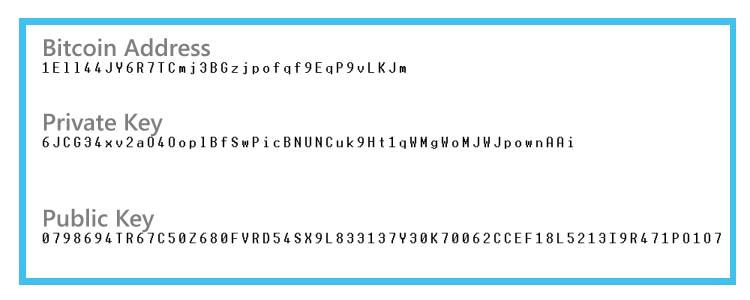
Employers continuously refine their interview processes to improve their ability to identify competent candidates using competency-based interview questions. These competency-based questions no doubt can be challenging, however, the questions are also opportunities for candidates to emphasise their key strengths and expertise during interviews.
However, the first to excel in a competency interview is to understand first what a competency interview is.
A competency interview, sometimes known as a structured, behavioural, or situational interview is designed to test a candidate’s one or more skills competency.
A competency interview typically involves an interviewer asking a series of questions, each question will focus on a specific skill or behaviour. The interviewer will then evaluate a candidate’s answer and response by comparing it against pre-determined criteria.
A candidate’s answers and responses will allow interviewers to accurately and quickly determine how a candidate will handle a situation and the behaviours they will demonstrate in certain situations.
Below are the competencies that are most commonly evaluated and looked at by employers:
In short, employers use competency interviews to determine whether candidates have the skills that are required for the position they are applying for and if their behaviours fit the company’s culture and are beneficial in certain circumstances.
Preparing for competency-based interviews involves several important steps. Firstly, it is crucial to thoroughly research the company and the specific role you are applying for. This includes understanding the company's values, mission, and culture, as well as familiarising yourself with the responsibilities and qualifications of the role. Additionally, identifying the key competencies required for the position is essential. This can be done by carefully analysing the job description and requirements provided by the company, paying attention to keywords and phrases that indicate the desired skills and attributes.
Once you have identified the relevant competencies, it is important to reflect on your own experiences and achievements. Take the time to consider situations where you have demonstrated the desired skills and achieved noteworthy results. These could be from your professional or personal life and should align with the identified competencies. By preparing specific examples that highlight your abilities and achievements, you will be better equipped to articulate them during the interview.
Overall, a well-rounded approach to preparing for competency-based interviews involves a combination of researching the company and role, identifying key competencies, analysing job descriptions, and reflecting on personal experiences. This preparation will enable you to answer interview questions effectively and demonstrate your suitability for the position. Remember to provide specific examples, outline the situation, actions, and outcomes, and showcase your competency and skills throughout the interview process.
Once you have a better understanding of the company and the job role, you can easily tackle any competency questions by anticipating the questions that are commonly asked. Below are some sample questions that are most commonly asked and why are they important:
During an interview, candidates should pay close attention to the interviewer’s body language when responding to the questions that were asked as this will provide clues. For example, as candidates answer and provide examples to the questions being asked, take note of whether the interviewer’s body language generates a positive or negative response. If it's the latter, candidates would need to adjust their response accordingly and make a quick mental fact check for the answer they have provided.
In short, candidates that can adapt and improvise their answers on the go during their interview — adjusting their answers to what the interviewer wants to hear and present in a way that can influence the interviewer’s opinion of them will have better chances of passing their interview.
Remember, when responding to competency-based questions, it's essential to structure your answers using the STAR method (Situation, Task, Action, Result). This format provides a clear framework for sharing your experiences and highlights the positive outcomes of your actions.
The STAR method offers a structured framework for your responses, guaranteeing comprehensive coverage of all essential components and effective showcasing of your skills. This approach enables interviewers to gain insight into your thought process, problem-solving capabilities, and the potential value you can contribute to the organisation. By adhering to the STAR method, you enhance the clarity and impact of your interview responses.
In addition to the STAR method, there are other strategies that can contribute to your success in a competency-based interview.
Competency interviews can be challenging but provide candidates with an opportunity to showcase their skills and expertise. By understanding the nature of competency interviews and preparing thoroughly, candidates can greatly improve their chances of success.
Candidates are encouraged to apply the strategies and techniques discussed in this article to their own interview preparations. Conduct research on the company, update resume’ to highlight relevant skills and achievements, and stay informed about current market trends. Additionally, practice answering common competency interview questions using the STAR method to structure your responses effectively.
Remember to pay attention to the interviewer's body language during the interview and adapt your answers accordingly. Active listening and maintaining a strong and positive interaction with the interviewers will leave a lasting impression.
Approach the next competency interview with confidence. Remember that every question presents an opportunity to showcase skills and demonstrate how candidates would handle specific situations. Also, be honest, avoid embellishing or inventing answers, and provide genuine responses.
We wish candidates the best of luck in their future interviews. Embrace the challenge, and be well-prepared. With the right preparation and a positive mindset, candidates can ace their next competency interview and land the job they desire.

The recent global pandemic has accelerated the world’s digitalisation — changing how businesses operate; from brick-and-mortar to hybrid or fully online, in addition to changing operation models, businesses and companies also had to adopt and use digital tools and platforms to accommodate their operation models effectively. As a result, the demand for tech and digital roles increased and is not limited to only big tech or startup ecosystems, but essentials for all industries. Due to that, the job market for tech and digital jobs this year has become competitive. In other words, companies and businesses are willing to offer attractive salary ranges for tech and digital jobs so that they become more competitive in their industry.
As a matter of fact, according to Forbes's recent reports, digital and tech jobs such as:
In the next section, we will explore some of the currently highest-paying tech and digital jobs in 2023, what are the job scopes and the skill requirements to apply.
Software engineers are professionals within the computer science industry who specialize in coding. To thrive in this field, it is crucial to identify the objectives and tools necessary for various developer roles, as different programming languages are required for different applications. For instance, game developers commonly employ C++ or C# to create video games, whereas software developers utilise C++, C#, and Java to construct desktop applications, business applications, and system software.
While software engineers play a vital role in constructing, refining, and troubleshooting software, they typically do not make decisions regarding what to build. Embarking on a career in software engineering can open up opportunities in specialised fields such as front-end engineering, back-end engineering, full-stack engineering, software testing, mobile app development, data engineering, security engineering, and more.
The role of a Front-End Developer involves creating innovative user-facing functionalities, shaping the layout and appearance of web pages, constructing reusable code components, enhancing page loading speed, and utilising various markup languages to craft compelling web pages.
Becoming an efficient front-end developer requires a combination of technical skills and soft skills. Firstly, you need proficiency in HTML and CSS to structure and style web pages effectively. JavaScript knowledge is crucial for adding interactivity and dynamic features, and familiarity with popular frameworks like React or Angular can boost your development capabilities. Responsive design, cross-browser compatibility, version control, web performance optimization, debugging, and problem-solving skills are also essential to ensure high-quality front-end development.
In addition to technical skills, strong collaboration and communication abilities are crucial. Front-end developers often work closely with designers, back-end developers, and stakeholders, so effective communication is key to understanding project requirements and delivering the desired user experience. Collaboration skills enable you to work effectively in a team, share ideas, and resolve conflicts. By mastering these skills, you can assume the role of a proficient front-end developer capable of creating visually appealing, user-friendly, and responsive web interfaces.
The duties of a Back-End Developer involve the development, upkeep, testing, and troubleshooting of the complete back-end of an application or system. This includes handling the core application logic, databases, data and application integration, APIs, and other behind-the-scenes processes.
To become an efficient back-end developer, you need a strong foundation in server-side programming languages. These languages, such as Python, Java, or PHP, allow you to handle data, implement business logic, and interact with databases. Understanding the syntax, data structures, and libraries specific to your chosen language is essential for efficient back-end development.
Additionally, proficiency in databases and query languages is crucial. Back-end developers work extensively with databases to store and retrieve data. Understanding SQL (Structured Query Language) and being able to design efficient database schemas, write optimized queries, and implement database management systems (such as MySQL or PostgreSQL) are essential skills for an efficient back-end developer.
Moreover, knowledge of web frameworks is beneficial. Web frameworks provide pre-built components and tools that streamline the development process. Familiarity with frameworks like Django (Python), Spring (Java), or Laravel (PHP) can significantly accelerate back-end development by providing tools for routing, authentication, and database interactions.
The role of a Full-Stack developer entails taking charge of both front-end and back-end development tasks. They are responsible for designing, developing, and ensuring the ongoing maintenance of comprehensive platforms that encompass databases or servers and are fully operational.
Becoming an efficient full stack developer requires a diverse set of skills in both front-end and back-end development. A full stack developer should be proficient in front-end technologies such as HTML, CSS, and JavaScript to create visually appealing and responsive user interfaces. They should also have strong back-end development skills, including knowledge of server-side programming languages, database management systems, and RESTful APIs.
Additionally, familiarity with web development frameworks and version control systems is essential for efficient full stack development. Problem-solving and troubleshooting skills, along with an understanding of deployment and DevOps practices, further contribute to their effectiveness in managing the entire web development process.
A mobile developer's main responsibility is to create and maintain mobile applications for platforms like iOS and Android. They design, code, test, and debug applications, working closely with designers to implement user interface and user experience designs. Mobile developers specialise in specific platforms, staying updated with the latest platform updates and best practices.
Their roles also include integrating APIs and services, conducting thorough testing and debugging to ensure app stability and functionality, and optimising app performance. They continuously learn and adapt to the evolving mobile technology landscape, staying informed about new tools, frameworks, and industry trends.
To assume the role of a mobile developer efficiently, there are several key skills required. Firstly, proficiency in specific mobile app development platforms such as iOS or Android, along with their respective programming languages and frameworks, is essential. Cross-platform development knowledge using frameworks like React Native or Flutter is also beneficial. A strong understanding of UI/UX design principles enables the creation of visually appealing and user-friendly mobile app interfaces. Additionally, skills in API integration, testing, and debugging are important for seamless functionality and stability of mobile applications. Mobile developers should also possess the ability to optimize app performance, collaborate effectively with team members, and continuously learn and adapt to stay updated with the latest industry trends and technologies.
The role of a cloud solutions architect is focused on designing and implementing cloud-based solutions for organisations. They are responsible for assessing business requirements and designing technical architectures that leverage cloud services and technologies. This includes planning the cloud infrastructure, managing migration and deployment processes, ensuring security and compliance, optimising costs, and collaborating with various teams.
Cloud solutions architects prioritise scalability, reliability, and security while designing cloud solutions. They work closely with stakeholders to understand their needs and translate them into effective cloud architectures. Additionally, they stay updated with industry trends and continuously improve existing cloud architectures to enhance performance and align with emerging technologies. Overall, cloud solutions architects play a vital role in driving successful cloud adoption and enabling organisations to leverage the full potential of cloud computing.
As a cloud solutions architect, several key skills are required. Firstly, you need a deep understanding of major cloud platforms like AWS, Azure, or GCP, including their services and capabilities. Proficiency in architectural design is essential to develop scalable and secure cloud solutions, utilising different architecture patterns based on business requirements. Networking knowledge and expertise in cloud security, including IAM and compliance, are vital for designing well-connected and protected cloud architectures.
Additionally, skills in solution development using programming languages, infrastructure automation tools, and familiarity with DevOps practices enable efficient management and deployment of cloud solutions. Strong analytical and problem-solving abilities are necessary to assess business requirements, optimise performance, and troubleshoot issues. Effective communication and collaboration skills facilitate successful teamwork with cross-functional teams and stakeholders. Lastly, a commitment to continuous learning ensures staying updated with the latest cloud advancements and obtaining relevant certifications.
Data scientists have a range of roles and responsibilities that revolve around extracting insights from large datasets. They collect and preprocess data, perform statistical analysis, and develop models using machine learning and artificial intelligence techniques. Their work involves exploring data, applying mathematical models, and utilising algorithms to identify patterns and correlations. Data scientists also play a crucial role in developing and deploying machine learning models to solve complex business problems.
Additionally, data scientists are responsible for data visualisation and reporting, presenting their findings through visually appealing and informative visualisations. They collaborate with cross-functional teams, communicate effectively with stakeholders, and contribute to data-driven decision making within organisations. Continuous learning and staying updated with the latest advancements in data science are vital for data scientists to enhance their skills and keep pace with emerging technologies.
The preferred candidate for this role should have a proven track record as a Data Scientist or Data Analyst, showcasing their expertise in data mining techniques and a strong grasp of machine learning and operations research principles. Proficiency in programming languages such as R, SQL, and Python is a prerequisite, with familiarity with Scala, Java, or C++ being an added advantage.
Experience with business intelligence tools like Tableau and data frameworks like Hadoop is highly desirable. The candidate must possess an analytical mindset and demonstrate a solid understanding of business operations. Excellent mathematical skills, particularly in statistics and algebra, are vital. A problem-solving aptitude is essential to excel in this position. Effective communication and presentation skills are highly valued attributes.
An AI developer is responsible for developing and implementing intelligent systems using AI technologies and algorithms. They design and develop algorithms, such as machine learning and deep learning models, to enable machines to perform tasks that require human-like intelligence. This involves preprocessing and training large datasets, optimising model performance, and integrating the models into production systems.
AI developers collaborate with cross-functional teams, conduct testing and evaluation to ensure model accuracy and performance, and continuously stay updated with the latest advancements in AI. They work closely with data scientists, engineers, and domain experts to define project requirements and apply AI solutions to specific industries or domains. By fulfilling these roles and responsibilities, AI developers contribute to the advancement of automation, decision-making, and problem-solving capabilities through intelligent systems.
Strong programming skills in languages such as Python, Java, or C++ are essential for implementing AI algorithms and frameworks. Understanding machine learning and deep learning techniques, along with frameworks like TensorFlow or PyTorch, is vital for developing and training AI models.
On top of that, skills in data handling and preprocessing, including data cleaning, feature selection, and normalisation, are necessary to work with large datasets. Strong mathematical and statistical abilities enable the understanding and implementation of AI algorithms. Problem-solving and critical thinking skills are crucial for identifying business problems and formulating effective AI solutions. Effective collaboration and communication skills are necessary to work in interdisciplinary teams and effectively convey AI solutions to stakeholders. Continuous learning and adaptability to stay updated with the latest advancements in AI, as well as ethical considerations in AI development, complete the skill set required for an efficient AI developer.
Cybersecurity Analysts have important roles and responsibilities in protecting organisations from security threats and breaches. They monitor systems and networks for potential threats, analyse security alerts, and investigate incidents to mitigate risks. They also conduct vulnerability assessments and penetration testing to identify weaknesses and provide recommendations for strengthening security controls. Managing security infrastructure, enforcing security policies and compliance, and promoting security awareness through training are among their key responsibilities.
Cybersecurity Analysts play a crucial role in incident response, containing the impact of security incidents, and restoring systems and data to normal operations. They document incidents, prepare reports, and communicate findings to management and stakeholders. Staying updated with emerging threats and technologies is essential for cybersecurity analysts to effectively protect organisations' systems and data. Overall, their responsibilities contribute to maintaining a secure computing environment and safeguarding organisations from cyber threats.
Firstly, a strong understanding of cybersecurity principles and best practices is essential, along with technical proficiency in areas such as networking protocols, operating systems, and security technologies. Incident response and digital forensics skills are crucial for identifying and investigating security incidents, while vulnerability assessment and penetration testing expertise helps in uncovering weaknesses in systems and applications.
In addition, a cybersecurity analyst should be familiar with various security tools and technologies, such as SIEM systems and vulnerability scanning tools, to effectively monitor and defend against threats. Strong communication and collaboration skills are necessary for working with cross-functional teams and effectively conveying complex security concepts. Continuous learning and adaptability are essential to keep up with evolving threats and technologies, while ethical and legal understanding ensures adherence to legal and ethical standards in cybersecurity practices.
The Product Owner plays a vital role in Agile software development teams, taking on responsibilities that revolve around product vision, requirements management, and stakeholder collaboration. They define and communicate the product vision, aligning it with business objectives and ensuring clarity and direction for the development team. The Product Owner acts as the bridge between stakeholders, customers, and the development team, gathering and prioritising requirements to create and maintain a product backlog. They work closely with stakeholders to understand their needs and translate them into actionable user stories that guide the development process.
The Product Owner is also responsible for maximising the value delivered by the development team. They continuously prioritise the backlog based on customer and stakeholder feedback, market trends, and business goals. During the development process, the Product Owner collaborates with the team, providing clarifications, making decisions, and adjusting priorities as needed. They actively participate in sprint planning, review meetings, and daily stand-ups to ensure the team is aligned and working towards the product vision. Ultimately, the Product Owner plays a crucial role in delivering a successful product by effectively managing requirements, prioritising work, and facilitating collaboration between stakeholders and the development team.
A Product Owner should possess a strong understanding of the domain in which the product operates and demonstrate business acumen to align the product roadmap with business objectives. Effective communication and collaboration skills are crucial for interacting with stakeholders and the development team, while a user-centric mindset helps in understanding and translating user needs into actionable requirements.
A Product Owner also needs to exhibit prioritisation and decision-making abilities to maximise the value delivered by the product. Familiarity with Agile methodologies enables them to effectively manage the product backlog and participate in Agile ceremonies. Adaptability and flexibility are necessary to navigate changing requirements and market conditions, while analytical and problem-solving skills allow for data-driven decision-making and addressing complex challenges.
The role of a Growth Marketer is centred around driving business growth by developing and implementing effective strategies. They are responsible for creating and executing plans to increase user acquisition, engagement, and retention. This involves analysing market trends, conducting competitor research, and identifying growth opportunities to develop targeted marketing campaigns and initiatives.
A significant part of a Growth Marketer's role is focused on user acquisition, utilising various marketing channels and tactics to attract new users or customers. They optimise digital marketing campaigns, leverage social media platforms, employ search engine optimization (SEO) techniques, and utilise targeted advertising to reach the target audience. Additionally, they may collaborate with cross-functional teams to optimise the user experience, implement referral programs, and explore partnerships to expand the user base.
Furthermore, a Growth Marketer analyses user data and conducts experiments to optimise conversion rates, improve user engagement, and increase customer retention. They utilise analytics tools to track key performance indicators (KPIs) and measure the success of growth initiatives. With a data-driven approach, they make informed decisions, iterate on strategies, and continuously optimise marketing efforts to drive business growth. Overall, the role of a Growth Marketer is crucial in shaping and executing growth strategies that lead to the expansion and success of a business or product.
Assuming the role of a Growth Marketer efficiently requires a diverse skill set that encompasses marketing strategy, data analysis, creativity, and adaptability. Firstly, a Growth Marketer should possess a deep understanding of marketing principles and strategies, including market research, customer segmentation, and competitive analysis. This knowledge enables them to develop effective growth strategies and identify opportunities to drive business growth.
Secondly, proficiency in data analysis and interpretation is crucial for a Growth Marketer. They need to be able to analyse user data, track key performance indicators (KPIs), and derive insights that inform their decision-making process. A data-driven approach allows them to measure the success of marketing campaigns, optimise conversion rates, and improve user engagement and retention. Creativity is also a valuable skill for a Growth Marketer, as they are often required to think outside the box and come up with innovative marketing strategies to attract and retain users.
Lastly, adaptability is important in this role, as the digital landscape is constantly evolving. Staying updated with the latest marketing trends, technology advancements, and consumer behaviour is necessary to keep marketing efforts relevant and effective.
The Product Marketing Manager plays a vital role in bringing a product to market and ensuring its success. Their responsibilities include conducting market research, developing go-to-market strategies, crafting compelling product messaging and positioning, creating marketing collateral, enabling the sales team, and overseeing product launches and adoption. They analyse the market landscape and customer needs to develop a deep understanding of the target audience, positioning the product accordingly to differentiate it from competitors. They collaborate with cross-functional teams to coordinate product launches, develop marketing materials, and train the sales team on product features and benefits. The Product Marketing Manager's role is crucial in effectively communicating the value of the product, supporting sales efforts, and driving its successful adoption in the market.
To assume the role of a Product Marketing Manager efficiently, a combination of skills is required. These include market analysis and research abilities, strategic thinking, excellent communication and messaging skills, creativity in crafting compelling content, collaboration and coordination with cross-functional teams, and project management capabilities. Additionally, strong business acumen, customer empathy, and a deep understanding of the product and market dynamics are important. A successful Product Marketing Manager can effectively navigate the intersection of product, marketing, and sales, driving the success of the product by aligning it with customer needs, positioning it effectively, and enabling the sales team to effectively promote and sell it.
The role of a Network Engineer encompasses the design, implementation, maintenance, and security of computer networks. They are responsible for planning and configuring network infrastructure, ensuring its optimal performance and reliability. Network Engineers troubleshoot network issues, address security vulnerabilities, and optimise network performance to meet the organisation's requirements. They collaborate with cross-functional teams and communicate effectively with stakeholders to ensure seamless integration and alignment of the network with other systems and applications.
On top of that, Network Engineers play a crucial role in network security by implementing and maintaining various security measures such as firewalls, intrusion detection systems, and VPNs. They stay updated with the latest security threats and proactively address potential risks to safeguard the organisation's network from unauthorised access and data breaches. Documentation and reporting are also part of their responsibilities, ensuring proper documentation of network configurations, changes, and troubleshooting procedures, as well as providing reports on network performance, security incidents, and future enhancements.
To assume the role of a Network Engineer efficiently, it is essential to possess a set of key skills. Firstly, a deep understanding of networking fundamentals is crucial. This includes knowledge of networking concepts, protocols like TCP/IP, and technologies such as routing, switching, and VLANs. Proficiency in subnetting and network troubleshooting techniques is also important.
Secondly, expertise in network infrastructure and configuration is vital. A Network Engineer should have the ability to configure and manage network devices like routers, switches, firewalls, and load balancers. Knowledge of command line interfaces (CLI) and network management tools is valuable for efficiently configuring and monitoring network components.
Lastly, strong problem-solving skills are necessary to identify and resolve network issues promptly. A logical and analytical approach to troubleshooting is crucial in maintaining network performance and resolving connectivity problems. Effective communication skills are also important for collaborating with cross-functional teams and clearly conveying network-related information to stakeholders.
The primary responsibility of a UI/UX Designer is to create visually appealing and user-friendly digital experiences. They achieve this by conducting user research to understand the target audience's needs, behaviours, and preferences. By analysing user feedback and conducting usability tests, UI/UX Designers gather valuable insights that inform the design process.
Based on the research findings, UI/UX Designers create wireframes, prototypes, and mockups that outline the layout, navigation, and visual elements of the digital product. They focus on creating intuitive and engaging user interfaces that provide a seamless user experience. This involves selecting appropriate colour schemes, typography, and graphical elements that align with the brand identity and enhance the usability of the product.
Furthermore, UI/UX Designers collaborate closely with stakeholders, including product managers, developers, and graphic designers, to ensure that the design vision is effectively translated into the final product. They iterate on designs based on feedback and user testing results, continuously refining and improving the user interface and user experience.
Firstly, a deep understanding of user-centered design principles is essential. This involves conducting user research, empathizing with users, and incorporating their feedback into the design process to create intuitive and user-friendly interfaces.
Secondly, proficiency in visual design is crucial. UI/UX Designers should have a strong grasp of graphic design, layout composition, typography, and color theory. They need to be able to create visually appealing and cohesive designs that engage users and align with the brand identity.
Furthermore, expertise in wireframing and prototyping is important for visualizing and testing design concepts. UI/UX Designers should be skilled in using design tools such as Adobe XD, InVision, or Axure to create interactive prototypes that showcase the user flow and functionality of the design.
Effective collaboration and communication skills are necessary for working with cross-functional teams and stakeholders, as well as for presenting design concepts and incorporating feedback. Additionally, a continuous learning mindset is crucial to stay updated with the latest design trends, tools, and technologies in this constantly evolving field.
The role of a Project Manager involves overseeing the planning, execution, and successful completion of projects within an organisation. Project Managers are responsible for creating comprehensive project plans, defining project goals, deliverables, timelines, and resource requirements. They lead project teams, assigning tasks, setting priorities, and managing resources to ensure the smooth execution of the project.
Project Managers also play a crucial role in risk management, identifying potential risks and implementing strategies to mitigate them. They monitor project progress, track milestones, and manage project budgets while effectively communicating with stakeholders to manage expectations and address any concerns. Additionally, Project Managers maintain project documentation and provide regular status updates to stakeholders, fostering strong relationships and ensuring effective communication throughout the project lifecycle.
To assume the role of a Project Manager efficiently, a combination of skills is required. Project Managers should possess strong leadership and organisational skills to effectively manage project teams and resources. Excellent communication and stakeholder management skills are essential for facilitating collaboration and addressing concerns. They must have a strategic mindset to plan and execute projects, along with problem-solving and decision-making abilities to navigate challenges.
Additionally, project management methodologies and tools proficiency, along with a detail-oriented approach to project documentation and reporting, are important for successful project delivery. With these skills, Project Managers can effectively manage projects, ensuring their timely completion and meeting stakeholder expectations.
GRIT is an innovative player in the job market, specialising in Tech & Digital roles. Their unique selling proposition lies in their ability to match candidates with job opportunities that align with their profiles, eliminating the need for aimless job applications. By simply signing up and creating a profile in under 60 seconds, individuals gain access to a streamlined process where companies directly apply to them. This approach brings the advantage of receiving concise and comprehensive job descriptions, devoid of unnecessary fluff, enabling candidates to make informed decisions about their career moves.
What separates Linkedin from other job board sites is that it allows job seekers to not only look and apply for jobs, but opportunities to connect and network with potential employers. Being a job board site, Linkedin’s job listings offer roles from various industries, but it is mainly catered to tech and digital roles. You can find a lot of tech and digital job listings on Linkedin, from the smallest startups to giant tech companies.
SEEK Asia operates an extensive network of regional job boards covering South East Asia and Hong Kong, including JobStreet MY, JobStreet PH, JobStreet SG, JobStreet ID, JobsDB HK, and JobsDB TH. Much like Linkedin, SEEK Asia offers job listings from various industries; from healthcare to information technology. Additionally, if jobseekers have a certain country as their preference, they can browse for job opportunities in their preferred country. In this case, job seekers would want to choose Singapore as their preferred country, because the country is currently steadily growing as a Southeast Asia tech hub. This means tech and digital jobs are high in demand.
The digital transformation brought about by the global pandemic has significantly increased the demand for tech and digital roles across all industries. As companies and businesses strive to stay competitive in this digital era, they are willing to offer attractive salary ranges for tech and digital jobs to attract and retain top talent.
To stay competitive in the market and become worthy of higher compensation, individuals aspiring for tech and digital roles should focus on developing and enhancing their skills. Keeping up with the latest industry trends, staying informed about the latest software programs and languages, and continuously expanding their technical expertise is crucial.
In addition to technical skills, professionals should also demonstrate exceptional problem-solving abilities, adaptability to evolving technologies, and strong teamwork skills. Employers value candidates who can contribute to the overall success of the company by actively engaging in the design, development, and maintenance of comprehensive platforms.
Jobseekers should consider acquiring relevant certifications and training to showcase their expertise and dedication to their field. Continuous learning and staying updated with the latest advancements in their respective domains will ensure their competitiveness in the job market.
The demand for tech and digital roles is expected to continue growing, presenting exciting opportunities for individuals seeking rewarding and well-compensated careers. By staying ahead of the curve, continuously improving their skills, and demonstrating their value to employers, professionals can position themselves for success in the competitive job market of the digital age.

Over the past decades, Asia has seen and experienced a significant technological transformation and growth, and there is potential for more.
Tech industry capability in Asia truly shone during the Covid-19 pandemic; from mobile app-based track and trace to using robots to enforce health safety. Besides healthcare and safety, there are three other areas where Asia has a high share of both startup investment and strong patents; mobile devices (mobile applications and games), artificial intelligence (machine learning, etc.) and the Internet of Things (IoT). In addition, McKinsey Global Institute (MGI) made a survey in 2020 and looked at 33 companies, and found that Asia has built a strong startup investment and Intellectual Property (IP) creation.
On top of that, the Asia region continues to see more unicorns appear as technology develops and enables businesses in Asia to expand their reach. It was in 2014 when the Asia region saw an explosion of unicorns and by 2016 there were a total of 60 unicorns in Asia. And according to a report by Nikkei Asia, Asia has a cumulative amount of 321 unicorns as of late July last year.
In short, Asia has positioned itself well and set itself up for strong growth potential, despite multiple disruptions such as supply chain disruption, inflation, etc. that have occurred over the last two years due to the Covid-19 pandemic.
In essence, tech hubs are a space or a region with a high density of startup companies located in and become a part of the economic infrastructure of the community or area. Tech hubs are also the place where things happen and move faster; a place where product and ideation can be streamlined.
Tech hubs exist to educate new and encourage new talent to adopt new ways of thinking by providing them with a space where tech businesses can experience accelerated business growth, which in turn will contribute to the region’s economy. Besides polishing new talent, tech hubs also offer seminars, workshops and mentorship programmes to current talent, so that they can equip themselves with the appropriate skills and connect experts to expand their career network.
Tech Hubs Main Focus
Thanks to its prime location; in the heart of fast-growing Asia and well-developed infrastructure, Singapore has become one of the leading tech hubs in Asia; attracting talent from across the globe to contribute to the Republic’s tech industry growth. Thanks to Singapore’s unique position between East and West, the country is attracting over 600 investors and 200 incubators and accelerators.
According to the Economist Intelligence Unit's Asia Digital Transformation Index, Singapore was ranked in fourth place for digital infrastructure, after Denmark, the United States and Sweden, leading Asia’s ranking.
Singapore offers pro-business policies and environments; absorbs bank loans up to 70%, and grants to support training and building capabilities for research and innovation. On top of that, Singapore has fully streamlined and digitised the procedure for registering a company --- it only takes 15 minutes to register and approximately 1.5 days to set up a business. Furthermore, there are also various state and government-linked initiatives such as the Smart Nation Singapore programme and the Grants for Innovation to provide support for tech startups.
Also, according to a report from Deal Street, Singapore is the home to 25 unicorn companies. One of the unicorn companies is Grab, the renowned e-hailing service and one of the first unicorn companies in Singapore.
Currently, Singapore is invested in researching and developing communication technologies with a focus on 5G and the nationwide adoption of artificial intelligence (AI).
Pros:
Cons:
Hong Kong offers not only a geostrategic location that is close to some of Asia’s boom markets such as Mainland China, but it also offers a dynamic startup ecosystem, world-class infrastructure and a pro-business environment. As proof, Hong Kong consistently ranks within the top 10 for digital readiness, as reported by IMD.
Hong Kong provides a great and encouraging business environment for startup companies because of how easy it is to register and set up a business there. Besides easy business registration, Hong Kong also offers free economy and trade --- which means any business established and based in Hong Kong has permission to have a bank account anywhere without any restriction from the Hong Kong government.
Another perk that Hong Kong offers as a tech hub is that the government provides various support and initiatives for Hong Kong’s tech industry such as Hong Kong Science Park and Cyberport. The Hong Kong Science Park is managed by HKSTP, a statutory body set up by the HKSAR Government in 2001. As the largest R&D area and leading innovative ecosystem in Hong Kong, HKSTP is home to more than 1,100 enterprises and 17,000 innovators. With state-of-the-art facilities and support services for tech companies, startups, and research institutions, the high-tech hub fosters collaboration, nurtures talent, and drives technological advancements, contributing to the region's economic development and global competitiveness.
Apart from the R&D of artificial intelligence, which is currently the hottest trend, HKSTP also has another focus - healthcare technology. As a key driver of the biotechnology scene, the Hong Kong Science Park provides ample support from laboratory space to research facilities to funding opportunities, sparking innovation in medical devices, diagnostics, therapeutics, and personal care, as well as regenerative and traditional Chinese medicine. Some life-saving technology innovation spearheaded at HKSTP includes Phase and Biotheus, two pioneering healthcare startups with the aim of improving the health of humankind.
Besides Hong Kong Science Park, there is also another thriving digital community and area in Hong Kong; the Cyberport. The Cyberport is an innovative digital community and is currently the base of operation for over 1,900 startups and tech companies. Much like Hong Kong Science Park, Cyberport is managed by Hong Kong Cyberport Management Company Limited, a corporation wholly owned by the Hong Kong Government. Cyberport's main focus is to facilitate the growth of trending modern technology such as FinTech, smart living, digital entertainment and cyber security. Besides facilitating modern technology growth, Cyberport also aims to cultivate new talent and enhance current talent skills through various programmes and resources.
Cyberport’s potential to help grow Hong Kong’s tech industry has attracted 187 investments and 728 incubatees to join and choose Cyberport as their development and investment ground.
Pros:
Cons:
Tokyo is one of the biggest and most populous cities in Japan and the economic centre of Japan and has always been considered Japan’s hub for technology, business and innovation. Tokyo's current startup scene and ecosystem are booming; according to Startup Genome’s ranking, Tokyo ranks in 12th place. The current booming startup scene and ecosystem is the result of the Tokyo Government’s coordinated efforts in response to the acceleration of digital technology.
One of the efforts is an initiative launched in 2020, called Tokyo Consortium. Currently, Tokyo Consortium is moving as a leading member of Tokyo’s startup community made up of more than 270 leading companies, investors, incubators, universities and the government. There is also another initiative by the Tokyo Metropolitan Government called Global Innovations with Startups. The programme aims to build an encouraging startup environment and to attract overseas venture capital and accelerators to transform Tokyo into one of the most startup-friendly cities in the world.
Besides being the home to giant tech and engineering companies such as Sony, Mizuho, Honda, SoftBank, Mitsubishi and Toyota; there are currently over 1,200 startups in the city and the startup ecosystem is valued at $62 billion, with the most rapidly growing sectors being robotics, SaaS, Fintech and consumer services. There are already a few successful startup tech companies in Tokyo such as SIVA, Cogent Lab, PlayBrain, Visual Alpha and dotData.
With the emergence of the mentioned successful startups, Tokyo has become an ever-growing innovation centre with an advanced and efficient system. On top of that, sustainability and energy security are also the top priorities in Tokyo; making the city a great place for startups to establish a foothold.
Pros:
Cons:
The Korean tech hub and startup scene are centred around Seoul. With the recent announcement and showcase at CES 2023 by the Seoul Metropolitan Government (SMG) and its partner Seoul Business Agency (SBA), coupled with Seoul's recent jump in ranking to 4th place for Digital City Index 2022 as reported by The Economist Impact’s whitepaper — Seoul has positioned itself a potential tech hub and a city ripe for early stage startups. Because of that, Seoul is currently home to 39 incubators and accelerators and attracted 296 venture capital funds as of December last year.
This showcase is a display of Seoul's determination to become a haven for startup companies and to transform Seoul into one of the world’s leading startup and tech hubs. Though Seoul is already home to several successful tech companies such as PlusLab, LG, Oracle, and more; Seoul’s mayor --- Mayor Oh Se-hoon stated he plans to attract and bring in more foreign companies through the Invest Seoul programme for the aforementioned reasons. To further solidify Seoul’s efforts in transforming into a tech startup hub, the mayor also mentioned he plans to open a second FinTech Lab and a digital financial support centre to support FinTech startups in Korea. Aside from FinTech, Seoul is currently focusing on 6 other major industrial clusters; Biotechnology, AI and Big Data, Fintech, Robott, and IoT.
Besides the various government-backed programmes, Seoul also has a dedicated main tech hub, another Korean Government initiative to transform Seoul into a startup haven and tech hub; The Pangyo Techno Valley. Pangyo Techno Valley was built in 2012 as a Korean hub of innovation, similar to Silicon Valley. Currently, there are over 1,700 companies in Pangyo Techno Valley and 92% of them are tech companies. The current combined revenue is over $100 billion, marking Seoul’s Pangyo Techno Valley as a potential tech hub for tech startups to develop and establish their business.
Pros:
Cons:
The Zhongguancun Science Park, also known as China's Silicon Valley, has outlined ambitious plans for the growth of its digital economy in the next five years. The park's management committee has released a roadmap to achieve an average annual growth rate of at least 15% and a total income of over 6 trillion yuan (approximately $917 billion) by 2025.
The park has already demonstrated strong performance, with year-on-year revenue growth of 16.3% from January to October of the current year, reaching 2.56 trillion yuan. This growth has been driven by significant developments in various sectors, such as Internet applications for medical services, education, and offices. As a testament to this strong and ambitious development, Beijing placed itself in 5th place for Digital Readiness Cities Index 2022, reported by The Economist Impact.
Moving forward, the Zhongguancun Science Park aims to make breakthroughs in core and applicable technologies, provide support to digital economy enterprises, and advance industrial innovation. It will focus on enhancing innovation and the application of key sectors, including AI, big data, blockchain, and the Internet of Things (IoT). These areas are crucial for driving digital transformation and fostering the integration of the digital economy. The said aims have managed to attract and convince 34 incubators and accelerators to choose Beijing as their development ground.
By emphasising innovation and the utilisation of cutting-edge technologies, the park aims to solidify its position as a leading hub for technological development and entrepreneurship. The growth targets outlined in the roadmap reflect the park's commitment to driving economic growth through digitalisation and fostering an ecosystem conducive to innovation and industrial advancement.
Zhongguancun Science Park is also home to many world-renowned tech companies such as AMD, Google, Intel, Sony and Oracle Corporation. Further solidifying its status as Asia emerging tech hub.
Also, besides Zhongguancun Science Park, Beijing is home to 2 other tech and science research and development zones; Huairou Science City, and Future Science City. The three zones form and establish a world-class scientific platform.
Beijing also has another active initiative going on currently, the Beijing E-Town initiative. Beijing E-Town was launched to provide support to leading industries such as automotive, science, digital technology, etc. Aside from providing support, Beijing E-Town also aims to draw in foreign investment by attracting more industry-leading companies and unicorns and boosting China’s Free Trade Zone (FTZ). As of December last year, Beijing has 344 venture capitals investment. Signalling that Beijing has the potential to become one of Asia’s leading tech and startup hubs.
Pros:
Cons:
Since the 1980s, Taiwan has consistently strengthened itself to position itself as Asia’s leading tech hub. To ensure it won’t lag behind, the island nation launched a government-linked initiative called Taiwan Tech Arena (TTA).
Located in the Taipei Arena, the Taiwan Tech Area (TTA) is a specialised hub for technology innovation and entrepreneurship. Its mission is to establish itself as the preeminent tech-focused ecosystem in Asia, by facilitating collaboration and innovation among Taiwanese and international startups. TTA fosters an environment that cultivates entrepreneurship and encourages the exchange of ideas and expertise within the tech industry. This initiative has placed Taiwan in 11th place on IMD Digital Competitiveness Ranking 2022.
Funded by the Ministry of Science and Technology (MoST), TTA provides a co-working space that features 250 desks, 22 meeting rooms, and a mix of social and event spaces - an ideal launchpad for startups in the tech industry. TTA's immersive programs accelerate the growth of more than 100 startups each year. Moreover, it serves as a platform not only for startups to network with one another but also for investors seeking investment opportunities.
Other than TTA, there is another initiative to provide support for startups; Invest Taipei. This initiative was launched by the Taipei City Government's Department of Economic Development to provide assistance and support to both domestic and foreign companies or entrepreneurs by providing them with an understanding of Taipei’s business environment, including related policies and legislation. Thanks to this initiative, there are currently 26 incubators in the Taipei City startup hub. As a result, Taipei has become home to several successful startup techs companies such as KKDay, TXOne, Blocto, Vpon, and WOO.
Besides TTA and Invest Taipei, Taiwan also has another initiative programme to help build and develop the startup ecosystem in Taiwan. That initiative is called Taiwan Startup Stadium (TTS), the leading startup ecosystem builder in Taiwan. TTS was established in 2015, but it has already supported over 230 startups through a network of more than 120 mentors, 500 investors, and 30 corporations. TSS's primary objective is to foster strong connections among its member startups and forge partnerships with local and international entities, including international accelerators, conferences, partners, and corporate organisations.
Pros:
Cons:
Hong Kong's tech hub is a thriving ecosystem that has gained recognition as a major player in the tech industry. The city's strategic location, highly skilled workforce, and business-friendly policies have made it an ideal destination for startups and established companies alike. The key tech industries in Hong Kong include fintech, e-commerce, and logistics, as well as renowned companies such as Tencent and Alibaba, have contributed significantly to Hong Kong's growing tech sector.
Some of the advantages of working in Hong Kong's tech hub are access to a highly skilled talent pool, diverse funding opportunities, and supportive government policies that facilitate business growth. Hong Kong also serves as a gateway to the Chinese market, offering unparalleled access to a vast consumer base.
Compared to other tech hubs in Asia, Hong Kong stands out for its unique blend of Chinese and Western cultures, highly efficient infrastructure, and proximity to other major Asian markets. As a result, the city makes for an attractive destination for entrepreneurs looking to expand their business in Asia.
In addition to its unique culture, strategic location and highly efficient infrastructure, Hong Kong also offers various programmes and resources to support tech startups such as HKSTP's Hong Kong Science Park and Cyberport.
Hong Kong’s thriving tech hub is a testament to the city's ability to innovate and adapt to the ever-changing tech landscape. As the tech industry continues to evolve, Hong Kong's tech hub is poised to play an even more significant role in shaping the future of the industry in Asia and beyond.
Looking to discover more about what Hong Kong tech hub has to offer? GRIT and HKSTP are hosting a career networking event for top tech talent like you to not only learn more about Hong Kong’s thriving tech scene but also connect with like minded professionals and top industry leaders from companies like Lalamove, Fano Labs, Huawei, Aerosim, Centre for Artificial Intelligence and Robotics (CAIR) Hong Kong Institute of Science & Innovation Chinese Academy of Sciences, and more. This is an opportunity you don't want to miss to expand your network, gain valuable insights from experts, and potentially take your tech career to the next level. Register now and be part of the exciting tech hub in Asia. Learn more about the event or register for the event based on your current location below:

In today's fast-paced professional world, making a good first impression can be the key to career success. Whether you're networking at a conference, interviewing for that dream job, or simply introducing yourself to someone new, a well-crafted and strong elevator pitch can quickly and effectively communicate your unique value proposition. But creating the perfect elevator pitch takes more than just a few rehearsed lines.
It requires a deep understanding of your audience, your strengths and goals, and the ability to communicate your message clearly and concisely. In this article, we'll explore some tips and tricks for crafting the perfect elevator pitch, from identifying your core message to practising your delivery. Whether you're just starting out in your career, or looking to take it to the next level, mastering the art of the elevator pitch can help you stand out in a crowded job market and achieve your professional goals!
An elevator pitch is a brief, persuasive speech that you can use to spark interest in what you or your business does. It's called an elevator pitch because it's meant to be delivered in the time it takes to ride an elevator from the top to the bottom of a building. Typically, an elevator pitch is 30 to 60 seconds long, and it should be concise, engaging, and memorable.
The purpose of the elevator pitch is to quickly and effectively communicate your key message to your audience. It's a way to introduce yourself or your business, explain what you do, and highlight your unique value proposition. The elevator pitch is often used in networking situations, job interviews, or when you meet someone new and want to make a good first impression.
Having a strong elevator pitch is essential in today's competitive job market. With so many people vying for the same opportunities, it's important to be able to quickly and effectively communicate your value proposition to potential employers or clients. A well-crafted elevator pitch can help you stand out from the crowd and make a memorable impression.
In addition to helping you land a job or a new client, a strong elevator pitch can also help you clarify your own goals and strengths. By distilling your message down to its core essence, you can gain a clearer understanding of what you have to offer and how to communicate it effectively.
A successful elevator pitch should include the following key components:
1) Your name and current position
Your name and current position should be the first things you mention in your elevator pitch. This helps to establish credibility and gives your audience a frame of reference for who you are and what you do.
2) Your unique value proposition
Your unique value proposition is the core of your elevator pitch. It's the thing that sets you apart from others in your field and highlights your strengths and skills. Your unique value proposition should be clear, concise, and memorable.
3) Your target audience
Your target audience is the group of people you are trying to reach with your elevator pitch. It's important to tailor your message to your audience so that they feel like you are speaking directly to them. This helps to create a connection and makes your message more relevant and engaging.
4) A call to action
Finally, your elevator pitch should include a call to action. This could be an invitation to connect on LinkedIn, a request for a business card, or an offer to schedule a follow-up meeting. The call to action helps to move the conversation forward and gives your audience a clear next step.
Crafting an amazing elevator pitch takes time and practice. Here are some tips to help you create a compelling and effective elevator pitch:
Delivering your elevator pitch with confidence is just as important as crafting the perfect pitch. Here are some tips to help you deliver your elevator pitch with confidence:
When crafting your elevator pitch, there are some common mistakes to avoid. Here are a few to keep in mind:
Here are a few examples of successful elevator pitches:
"Hi, I'm John, and I help small business owners increase their online visibility and attract more customers through targeted SEO strategies."
"My name is Jane, and I'm a graphic designer specializing in creating engaging and memorable brand identities for startups and small businesses."
"Hi, I'm Mike, and I'm an experienced sales professional with a track record of exceeding quotas and building lasting customer relationships."
Notice how each of these elevator pitches includes the key components we discussed earlier: the speaker's name and position, their unique value proposition, their target audience, and a call to action.
Here are a few exercises you can do to improve your elevator pitch skills:
Networking is an essential part of career success, and your elevator pitch can be a powerful tool in networking situations. Here are some tips for using your elevator pitch in networking situations:
Crafting the perfect elevator pitch takes time and practice, but it's an essential skill for career success. By identifying your unique value proposition, tailoring your message to your audience, and practicing your delivery, you can create a compelling and effective elevator pitch that helps you stand out from the crowd. Remember to be authentic, enthusiastic, and focused on the needs of your audience, and you'll be well on your way to achieving your professional goals.

It’s not every person you meet who’ll be able to proudly say they love their job, even more so if they’re only in it for the money. Most people dream of doing what they’re passionate about, while meeting their career aspirations AND at the same time earning enough to fund their chosen lifestyles.
Sounds like a very far shot? Not really; if you’re willing to put in the hard work and dedication in a job where you’re well remunerated, you could actually be able to achieve that.
No matter whether you’re a fresh graduate or a job seeker with years of experience under your belt, Singapore has always been one of the top destinations for those who seek greener pastures. In a country with attractive job opportunities (so long as you know where to look!), your efforts could be paid off with a considerably attractive income.
Where it once faced economic woes bad enough to create severe unemployment rates (the highest ever was 6.5%, recorded in 1986), Singapore is now one of the most advanced in the world, and has even topped lists such as “Most attractive countries to relocate to for work”. They placed a very respectable 8th place, by the way! And it’s not hard to see why, considering how its international competitiveness is robust, and the currency is the 13th-most traded in the world (by value).
So, if you’re looking to find your very own well-paying tech or digital career niche on this island, it’s time to check out this list.
Before we get to what are some of the lucrative careers you can consider, if you’re not a citizen/permanent resident, there are a few legal aspects you’d need to familiarise yourself with first.
The first and most important thing is to ensure you possess a valid pass (also known as a ‘work visa’). There are four main types to take note of: Employment Pass, EntrePass, Personalised Employment Pass, and ‘S Pass’. Here’s what each one means, in a nutshell (information taken from the official Ministry of Manpower (MOM) website):
| Pass Type | Who Is It For |
| Employment Pass | For foreign professionals, managers and executives. Candidates need to earn at least SG$4,500 a month and have acceptable qualifications. |
| EntrePass | For eligible foreign entrepreneurs who are keen to start and operate a business in Singapore that is venture-backed or possesses innovative technologies. |
| Personalised Employment Pass | For high-earning existing Employment Pass holders or overseas foreign professionals. The PEP offers greater flexibility than an Employment Pass. |
| S Pass | For mid-level skilled staff. Candidates need to earn at least $2,500 a month and meet the assessment criteria. |
Quick tip: You can use the online self-assessment tool created by the MOM to help you get a rough idea of your eligibility.
You’d also need to read up on the Singaporean government’s common employment practices, to ensure that they’re a good fit for your lifestyle. Think: Leaves of absence, public holidays, working hours, and salary, for example. The MOM’s exhaustive list of aspects covered will help you get a rough understanding of what working in Singapore will be like!
We’ve now come to the highlight of this article: What are the careers you could be considering that would pay you well for all your hard work! The data was taken from GRIT’s latest Salary Report and Market Outlook 2022/2023, where the monthly salary ranges were derived from the knowledge of senior recruitment professionals within the GRIT teams, as well as latest data from multiple job databases.
Editor’s note: The list below has been arranged in ascending order, and doesn’t include roles that are of managerial level and above.
Download your own FREE copy of the report and find out more: Salary Report and Market Outlook 2022/2023

To be a successful software engineer, you'd need to know how to use the right programming languages, platforms, and architectures to design and develop computer applications or programmes. This high-responsibility role will have you in charge of various types of projects, from computer games to network control systems. You may even be tasked with overseeing your very own team of software developers! Some of the soft skills you'd also require are problem-solving, a strategic mind, and communication. Don't forget to earn relevant certifications, because you can then build new skills and validate those skills to potential employers.

Trade marketing (also known as 'B2B marketing') focuses on increasing the demand of the product/service among the various supply chain partners. Whereas consumer marketing (also known as 'B2C marketing') focuses on both acquiring potential customers, and retaining current customers. Whichever you fall under, you're going to be in charge of promotional activities and marketing strategies that would communicate the value of the product/service to either the businesses or consumers. You'd need to personalise brand experiences too, as well as develop ideas on how to promote sustainable brand development.

DevOps is not only a cultural shift, mindset, or just a set of technologies; DevOps is the new way forward! First off, you'll have to understand the full software development lifecycle, because you're chiefly responsible for coming up with an organised solution to deal with the difficulties in the given system. You do this by examining the large system environment, and selecting an application framework which fits best. Generally, you must have a bachelor’s degree in software engineering, computer science, or a related field in order to seek employment in this role.

Companies nowadays are increasingly reliant on data to make important business decisions, such as which new products to develop or new/existing customers to target. As a data architect, your role is to know how to translate those business requirements into technology requirements, as well as define data standards and principles. You'd typically also need to act as liaison between the IT side of your company and the other departments, aligning data collection and distribution policies, with the company's operational and strategic objectives. In other words, you're the harnessing the power of data that drives modern-day businesses!

What exactly is a 'data scientist'? Imagine a data expert who has keen analytical skills, technical skills to solve complex problems, and enough curiosity to explore alternative solutions to the problems that need to be solved. As someone who's in high demand right now, they use data to understand and explain the phenomena around them, as well as help companies make better decisions. Plus, since their role seems to have a foot in both the business and IT worlds, they’re highly sought-after and well-paid. And it shows, since they made it onto this list as the top 10!

In the crypto/blockchain/Web3 space, someone in product management is capable of creating a strategy behind a product, and then oversee the launch from start to finish. But above all, they would need to coordinate the work done by others, such as product designers, data scientists, and software engineers. Once a particular project has achieved a considerable user base and the company wants to consolidate market advantage, that's when things like a product roadmap become necessary. In short, you'd provide much-needed coordination for a project, and ensure objectives are met.

Cloud computing architecture covers everything that's involved with cloud computing, including the front-end platforms, servers, storage, delivery, and networks required to manage cloud storage. So, this role basically refers to a person who has the skills and knowledge in converting the technical requirements of a project into the architecture and design that will guide the final product. He/she would also be responsible for bridging the gaps between other members of a tech team, plus be able to stay on top of the latest trends and technologies to keep abreast of the constantly evolving field.

When a company hires someone for growth acquisition, this job role typically means that in the crypto/blockchain/Web3 space, you'd be required to develop and execute creative strategies to help the company procure base customers/target audiences as well as uncover valuable partnership opportunities. In addition, you'd also be tasked with increasing both the Acquisition (e.g., work closely with the Head of Growth to build growth tactics that will generate traffic) and Activation (e.g., help the sales team close more deals by supporting them through the journey of all their prospects) conversion rates.

With this role, you'll essentially be responsible for proactively identifying new business opportunities, and developing relationships with various assigned institutional accounts (read: an account that's opened by/for an institution for the benefit of banks, mutual funds, or others). Furthermore, you'd need to maintain and develop the platforms of clients based around the world, as well as take charge of selling and pitching to new investors. Sounds like a lot of stuff on one plate? That's why this job role commands the second highest salary in the tech and digital industry!

We've reached the #1 spot, and what a hefty salary this highly-skilled individual will receive! And it's no wonder, because you'll be the one-person wonder who's a complete package of skills required to perform the operations, designing, developing, analysing, implementing, and supporting a distributed blockchain network. You're literally the expert mind behind the technology that powers cryptocurrencies and NFTs (Non-Fungible Tokens), so you're going to have to be familiar with various programming languages like Solidity, C++, Golang, and Java. Additionally, employers would expect you to already have prior knowledge of blockchain architecture.
If this list of the top 10 highly paid tech and digital jobs in Singapore is making you want to quickly start looking for available roles, WAIT.
First, you need to ensure that you’re adequately equipped with the skills and knowledge to perform at your best in this industry. You can do so by checking out all the job descriptions currently posted to see what hiring managers are looking for, and then cross-check with your own current skill sets. If you’re lacking in one or two, go take up courses and get certified, so that you can list them as strengths in the interview. Secondly, while getting theoretical knowledge is a good move, you can give yourself an edge over the rest of the candidates by getting some practical knowledge too. Get yourself some hands-on experience by joining internships, summer camps, and taking on small freelance jobs soonest possible.
According to Cham Hui Fong, deputy secretary-general, National Trades Union Congress (NTUC), employers and employees should constantly transform themselves so that they remain competitive and seize opportunities that come their way as the economy is recovering with the resumption of activities post-pandemic. This should lead to better business and work prospects, so that in the longer term, it leads to higher productivity and better wages.

With a charmingly quaint nickname like ‘The Fragrant Harbour’, this nation’s reputation as a global powerhouse in free economics and technology has been no secret for decades – they've had a reputation as the world’s freest economy for more than 25 years, holding on to that title since 1996 according to the Economic Freedom of the World 2021 Annual Report.
That’s not all, because Hong Kong is also the #1 financial centre in Asia. Did you know that New York, London, and Hong Kong are collectively known as ‘Nylonkong’, an acronym of the top three financial centres in the world? The Z/Yen Group and China Development Institute published their latest edition of the Global Financial Centres Index 31, which saw Hong Kong maintaining its third place in overall ranking in the world.
Now, there are many people who dream of being able to work in a career that they’re passionate about and will help them meet their career aspirations, as well as being well-remunerated so that they can fund their chosen lifestyles. So, if you’re a driven and skilled professional who’s looking for a chance to earn big, you’ve got your vision set on the right location!
This land of opportunities is obviously a very attractive prospect for ambitious foreigners, with its “fragrance” drawing in many of the top talent from far and wide. Luckily, Hong Kong has its arms wide open – assuming you have the right skill set. Let’s take a look.
You need to be aware that if you’re an expatriate who’s thinking of finding a job in the county, there are a few things you need to do first, notably obtaining your employment visa! There are a few that you can opt for: General Employment Policy (GEP), Admission Scheme for Mainland Talents and Professionals (ASMTP), Technology Talent Admission Scheme (TechTAS), Investment as Entrepreneurs, and even the Quality Migrant Admission Scheme (QMAS).
These schemes make it as easy as possible for you to get a job in the country, if you’re a highly skilled or talented individual in the right profession for their needs. They even have a Talent List website dedicated to clearly list the type of professionals they’re after. And if you notice, in the number of schemes listed above (taken from the official Department of Immigration website), there’s even one that’s been created specifically for eligible companies to admit non-local technology talent in the areas of artificial intelligence, biotechnology, cybersecurity, data analytics, and Internet-of-Things (IoT) to name just a few!
In addition, you also need to find out more about the Hong Kong government’s common employment practices, to ensure that they’re a good fit for your lifestyle. For example, as there’s no statutory standard working hour system or statutory maximum number of hours, working overtime without compensation is not uncommon. Furthermore, Saturday is considered a working day in many companies as well. Also, do find out about their taxation laws, so that you know how much of your salary is the take-home amount, and can adjust accordingly when it comes to negotiating with the recruiters.
Ladies and gents, we’ve now come to the meat of this article, and probably the main reason why you’re here! It’s time to find out which job roles would pay you well for all your hard work. The data was taken from GRIT’s latest Salary Report and Market Outlook 2022/2023, where the monthly salary ranges were derived from the knowledge of senior recruitment professionals within the GRIT teams, as well as latest data from multiple job databases.
Editor’s note: The list below has been arranged in ascending order, and doesn’t include roles that are of managerial level and above.
Download your own FREE copy of the report and find out more: Salary Report and Market Outlook 2022/2023

If you enjoy learning and building your own applications, why not consider this role? There are two main types of application developers: You'd either write workable programming code for a particular system such as Windows or Android, or across numerous platforms including computers and mobile devices. You become an important part of technical and/or project management teams, so polish those programming and related technical skills, in addition to your analytical capabilities and problem-solving skills. As you can work in almost every industry, that's where you can upskill and increase your value as an employee!

As technology now evolves at a breakneck speed, cybersecurity is becoming a real and very critical issue. Companies and organisations around the world are ramping up their efforts to protect themselves from cyberattacks, which is why this role is so in-demand now. You'd take on the role of both attacker and the defender in computer systems, networks, and software programs. Not only do you need to keep a client’s data protected and free from the risk, you also need to see what weaknesses there are and find out how to strengthen systems to prevent hackers from exploiting vulnerabilities.

Simply put: You’re an IT professional who works with developers and other IT staff to oversee code releases. The role of a DevOps engineer will vary from one company to another, but will always involve the understanding of the software development lifecycle, as well as the understanding of various automation tools for developing digital pipelines. In order to succeed, you need to have strong communication and collaboration skills, a solid understanding of all the components of a delivery pipeline, as well as to know the pros and cons of available tools and services.

Nothing to do with skies, a cloud consultant is generally someone who manages and deploys cloud infrastructure, according to each individual customer’s requirements. You'll be helping people in their planning, designing, and implementing the systems and services, in addition to providing ongoing support and maintenance once these systems are in place. Most people who pursue a career here would have a degree or Masters in computer science, information technology, or another related field. Furthermore, get certifications in different types of cloud services, systems, and solutions to prove that you're capable of handling the complex infrastructure.

First, let’s talk about ‘scrum’. This is an Agile (type of approach to project management) framework for developing complex projects, and allows teams to deliver high-value products by approaching problems iteratively. A scrum master is basically responsible for holding together the scrum framework, and ensuring a true scrum process over the course of a project. The results of the process depend upon the expertise of the Scrum Master, which is why he/she would need critical skills like problem-solving, adaptability, the ability to motivate, and communication. Finally, it’s also important to be proficient in specific technical skills related to Agile management.

This IT specialist is required to help his/her company in cloud adoption plans and cloud application design, as well as ensure a seamless migration to (and management of) all architecture in the cloud. You're going to need good knowledge about the concepts and moving parts involved in the integration and delivery process, because you'll also be working alongside DevOps engineers and developers as well as other members of the tech team (bridging the gaps between them) to ensure the right technologies are being built. Make sure your communication skills are top-notch here!

Sometimes called a 'company historian', this job role can sometimes be a bit difficult to define, because it straddles the lines between pure accounting, finance strategy, and leadership. You'd be running the accounting function, be responsible for the company’s ledgers and records, forecasting, as well as budgeting at the company level (based on accounting data). Phew, that's quite a lot! While it can vary among different companies, it's still important for you to have skills like strong leadership skills, interpersonal flair, excellent communication skills, and more than a touch of charisma.

These industries have long been filled with complex legal issues relating to regulatory status, compliance, corporate law, and anti-money laundering, to name just a few! So, if you're a legal counsel in the crypto/blockchain/Web3 space, you're someone who has a general background and understanding of related legal issues, as well as a deep understanding of the technologies that drive these industries and other related developments in distributive computing networks. Above all, you're not afraid of the volatility, and are able to think on your feet to navigate an ever-evolving regulatory landscape!

Here, you'd typically be responsible for developing and directing strategies to help a company restructure its business or establish strategic partnerships. This is done through mergers, acquisitions and divestitures. The goal is to improve financial performance, reach a greater level of organisational efficiency, and create opportunities to raise the company's value and competitiveness in the market. Essentially, you're looking to help your company outperform its competitors. You need to have a certain type of personality to thrive here, like being highly ambitious, outgoing, persuasive, and confidence-inspiring (all for obvious reasons).

Typically, a DevOps architect defines a systematic solution which fits best across the technical, operational, and management standards. You'd be able to generate an organised solution by examining the large system environment, and then selecting an application framework to deal with the difficulties in the given system. In this role, you must be capable of handling all the issues by implementing the strategies which are in line with the DevOps best practices. Generally, a DevOps architect must have prior experience in working as software developers and software architects, plus are expected to have more exposure to Agile methodology.
One look at this list of the top 10 highly paid tech and digital jobs in Hong Kong, and you might just want to jump right into hunting for your role immediately. But, WAIT.
You’re going to need to ensure that both your current skill set and experience level are what the government is looking for. Take a look at all the current job postings to see their descriptions, and what the recruiters are looking for in their ideal candidate. From there, you’ll be able to cross-check and find out if you can apply immediately, or would need to upskill or pick up something new. No matter if it’s the former or latter, it’s just a matter of taking up courses and getting certified, then you can further bulk up your resume. Another thing to do is to get some practical knowledge, on top of improving your theoretical knowledge (which is already a good move!). This is because you’ll become an all-rounder which would then give you an edge over the rest of the candidates, so don’t forget to also sign up for internships, summer camps, and take on small freelance jobs as soon as possible.
According to Zhou Xiaofang, Otto Poon professor of engineering and chair professor of computer science and engineering, The Hong Kong University of Science and Technology, the nation has an unmistakable advantage when it comes to nurturing innovative minds, thanks to some of the top-notch tertiary education institutions available. He also said that one way for the local talent pool to be strengthened is to offer more funding to universities to raise the student intake for tech and digital fields.

Since the pandemic's arrival, economic imbalances are occurring around the world; inflation is rising in many countries, while various bodies and experts are predicting a global recession. The phrase is currently trending in the media, but what exactly is this financial meltdown that so many people are talking about, and should we be concerned?
According to Investopedia, a recession is a period of declining economic performance that lasts several months across an entire economy. Businesses, investors, and government officials monitor a variety of economic indicators that can help predict or confirm the onset of recessions.
Forbes emphasised that a recession is declared when a country's economy experiences negative GDP, rising unemployment, falling retail sales, and contracting income and manufacturing measures for an extended period. The world has seen some major recessions in the past, and the five worst financial disasters and recessions in history, as listed by Live Science, are:

Furthermore, the most recent global economic crisis occurred in 2020, when the world was placed under a 'Great Lockdown' due to uncontrollable Covid-19 spread, which, according to the International Monetary Fund (IMF), will cause the worst global recession since the Great Depression.
The prospect of a recession is frightening, but several major events happening around the world are affecting the global economy, making an economic downturn highly possible. The following are some of the current tense situations, and how they may be causes leading to a recession.

Separately, the ongoing economic turmoil has been linked to a major cryptocurrency crash, which has resulted in the emergence of a crypto winter.
Read more: Crypto Winter Is Here: What Does This Mean For The Market, And Will There Be Any Job Opportunities?
Coinbase CEO Brian Armstrong told CNBC that, “We appear to be entering a recession after a 10+ year economic boom. A recession could lead to another crypto winter and could last for an extended period. While it’s hard to predict the economy or the markets, we always plan for the worst, so we can operate the business through any environment.”
Global bodies and leaders such as the IMF, World Bank, and United Nations have forecasted the possibility of a recession. According to Reuters, the IMF's chief recently stated that the global economy has darkened significantly since April and that given the elevated risk, a global recession cannot be ruled out for 2023.
A post on IMFBlog mentioned that when the Group of 20 leading economies (G20) met in April, the IMF had just cut its global growth forecast for this year and next to 3.6%, and they had warned that the situation could worsen due to potential downside risks. Several of those risks have materialised since then, and the world's multiple crises have intensified, such as the human tragedy of the Ukraine war.
The aforementioned blog goes on to say that inflation is higher than expected, and has spread beyond food and energy prices. This has prompted major central banks to announce additional monetary tightening, which is necessary but will slow the recovery.
With the ongoing disruptions, recent indicators point to a weak second quarter – and a further downgrade to global growth for both 2022 and 2023. The outlook remains extremely uncertain, according to the IMF, and it'll be a difficult 2022 – and possibly an even more difficult 2023, with an increased risk of recession.

Similarly, the World Bank president told Fortune that “just over two years after Covid-19 caused the deepest global recession since World War 2, the world economy is again in danger”. He warns that for most countries, a recession will be difficult to avoid, and that there’s a possibility of stagflation (i.e., a recession accompanied by inflation).
According to the World Bank's June 2022 Global Economic Prospects, global economic growth is expected to slow before the end of the year, and most countries should begin preparing for a recession. Due to the weakened global economy following Covid-19, the World Bank initially forecasted a slower but still robust pace of global growth beginning in 2022. However, the Ukraine conflict has forced them to significantly reduce their projections to account for rising food and fuel prices, as well as disruptions to global trade networks.
Furthermore, the World Bank cautions that even a mild recession could have long-term effects on the world economy because current economic conditions could result in "stagflation," a state of low growth and high prices that's detrimental to the economies of developing nations.
UNCTAD also anticipated a possible impending recession. They claimed that, despite massive funding injections into major G20 economies, the world economy would enter a global recession this year, with a loss of global income in the trillions of dollars, which will be disastrous for developing countries. Given the deterioration of global conditions, fiscal and foreign exchange constraints are likely to tighten further this year. UNCTAD estimates that developing countries will face a $2 trillion to $3 trillion financing gap over the next two years.
They continued by stating that the combined effects of a pandemic and a global economic downturn would be disastrous for many developing countries, and would halt their progress toward the Sustainable Development Goals.
Many influential people and organisations in the industry have expressed concerns about the possibility of a global recession. According to Business Insider, some of the top CEOs in the United States are worried and predict that the economy will enter a recession. Here is what they have to say, along with some preparation advice:

Although many people think a recession is inevitable, some think things will calm down, and that one won't happen. The following experts and economists believe that there'll be no recession:

As suggested by the IMF, the world requires decisive action and strong international cooperation led by the G20. Whether or not a recession occurs, several countries around the world have taken extensive measures to control the dire situation that's currently taking place.
For instance, according to ABC News, central banks in New Zealand and Korea, have continued to raise interest rates to counteract rampant inflation. On July 13, the Reserve Bank of New Zealand (RBNZ) raised its benchmark overnight cash rate target from 2% to 2.50%, while the Bank of Korea (BoK) raised rates by 50 basis points to 2.25%.
In the United States, Federal Reserve hopes to lessen the impact of a recession by raising interest rates to achieve a 'softer landing' for the US economy, in which it can tame rapid inflation without increasing unemployment or triggering a recession. The Federal Reserve and expert forecasters predict that in 2023, unemployment will stay below 4% and inflation will drop to below 3%.
The economic downturn has affected all sectors, with many items increasing in price and layoffs occurring. The technology sector is not left behind, and it's likely to face significant difficulties in comparison to other industries.

According to Fortune, many of the tech names that dominated portfolios and outperformed for the majority of the last decade have seen their stock prices plummet in 2022. This includes the "FAANG" stocks of Facebook (FB), Amazon (AMZN), Apple (AAPL), Netflix (NFLX), and Alphabet (GOOG) (GOOGL). FAANG stocks are down about 37% on average since the beginning of the year.
It's impossible to predict what will happen to many tech companies should a recession strike, which could ruin their businesses. Even now, Business Insider reported that stocks are falling, start-ups are failing, and a possible recession threatens tech titans that once seemed untouchable.
The tech industry is being impacted and responding in various ways to this tough economic situation. Let's take a look at how some of the businesses are faring based on their circumstances:
(Source: Forbes)

(Source: Channel News Asia)
The cost of living is anticipated to rise in 2022 as global economies teeter on the brink of the worst financial catastrophe in living history. You must've heard how difficult the Great Recession was for so many people back then. So, some preparation must be made to face the uncertainty of an impending economic downturn that could hurt so many people's lives.
Here are 8 things you can do to protect yourself during this uncertain recession storm:
Although the prospect of a major global recession is frightening and unsettling, it's important to remember that the situation will not last indefinitely. While doing your best to stay afloat, you should also be extra cautious and prepared for a sudden downturn. Above all, maintaining your mental health is critical to weather the storms of negativity.

Cryptocurrency is any type of digital or virtual currency that primarily uses cryptography to secure transactions, preventing counterfeiting and payment fraud to the greatest extent possible. Unlike conventional currencies, cryptocurrencies only exist as a decentralised blockchain-based shared record of ownership.
Since its inception, the use of cryptocurrency has grown at a rapid pace, especially in the progressing Web3 world. Because there’s no central issuing or regulating authority, the crypto market is known to bring about massive changes in the world of financial operations and transactions.
Nonetheless, even with so much opportunity and exploration on Web3, the volatility of cryptocurrency is no secret, and the crypto crash that occurred in the middle of 2022 has been widely discussed, analysed, and reported. According to Crypto News BTC, the wild price swings were exacerbated by the TerraUSD and Luna meltdowns, which are estimated to have wiped half a trillion US dollars (approximately €500 billion) off the sector's market capitalisation.
Plus, as evidenced by the industry's frostbite since last month, there's talk that a crypto winter has already set in. The term "crypto winter" is used frequently to describe a bearish cryptocurrency market. The last crypto winter, during which cryptocurrency prices declined and stayed low, lasted from early 2018 to mid-2020. And, it's happening again right now!
It's all over the news right now that the markets are suffering, and crypto is taking a particularly hard hit. Consider the first cryptocurrency, bitcoin, which accounts for about a third of the market's value. Since the end of March, the price of a single bitcoin has been gradually falling, along with a general downturn in the tech industry.
Then, in early May, it fell even more than it had in the previous month. In addition to bitcoin's negative impact on the overall cryptocurrency market, the other top coins, such as Ethereum, BNB, XRP, Solana, Cardano, and avalanche, have all seen even greater losses.

International Telecoms Business Magazine suggested that the five main reasons for the cryptocurrency crash, in which the lowest plunge hits an 18-month record low in overall value, are as follows:
Here's how the current prices of the top coins compare to their daily high points over the last few months:
| Cryptocurrency | Current Price (29 June) | One Week Ago (19 June) | One Month Ago (29 May) | 3 Months Ago (27 March) |
| Bitcoin | $20,670.90 | $20,553.27 | $29,445.96 | $46,820.49 |
| Ethereum | $1,182.01 | $1,127.66 | $1,812.03 | $3,291.58 |
| BNB | $235.40 | $214.92 | $305.98 | $430.50 |
| XRP | $0.3423 | $0.3261 | $0.3890 | $0.8573 |
| Solana | $36.61 | $34.24 | $44.91 | $107.08 |
Compared to three months ago, the prices for the five main cryptocurrencies above have fallen significantly. This demonstrates that crypto winter is currently in effect, as crypto assets are losing value in comparison to prior highs.
According to The Guardian, the crypto crash could be linked to ongoing economic turmoil, such as the recent drop in the price of technology stocks as a whole. The decline is the result of high inflation reducing the appeal of high-growth, low-profit investments; as well as a string of scathing revelations from the largest corporations, raising fundamental doubts about the extent of their potential future growth.

The limited supply of bitcoins, which makes them an effective inflation hedge, may lead supporters to portray their currency as a sort of "digital gold. In reality, however, the possibility of a digital revolution decreases as growth prospects worsen, inflation increases, and bitcoin prices plummet.
Moreover, the sector is being harmed by retail investors, who may be treating the crypto market as a platform for day-trading rather than a long-term investment to hold value. They learn to take advantage of the crypto volatility, and will quickly sell their coins if they see a daily increase in price.
Crypto traders must also pay attention to the movement of whales (i.e. people who create waves that cause a ripple effect among small traders), who can manipulate the market by increasing and decreasing prices. As reported by Analytics Insight, Ethereum whales have been making headlines since the recent crypto crash. Mostly because, despite being Ethereum whales they were mostly hoarding Shiba Inu and other cryptocurrencies such as FTX Token, Chainlink, Cardano, and Axie Infinity.
Due to the unregulated nature of the cryptocurrency market, there’s currently no declared direct connection between it and traditional financial institutions. And, while it’s evident that the regular economy can influence the movement of cryptocurrency, the reverse is not true. Thus, it’s unlikely that the crypto crash will have any effect on them.
The Guardian specified that the conventional financial sector has mostly avoided the cryptocurrency industry, and if they do consider venturing into it, they have done so with caution and have treated it as an investment opportunity with a commensurately high level of risk. Even if the entire sector vanished overnight, the potential for contagion (i.e. spread of an economic/financial crisis) would be limited.
The scenario example given is that, although the knock-on effect would have a significant impact on some conventional stocks (and investors in venture capital funds like Andreessen Horowitz's recent $4.5 billion round of investment in cryptocurrency companies may be wiped out), the systemic effects are highly unlikely.
However, the cryptocurrency market is still worth more than US$1 trillion, and losing that much money has a significant detrimental effect as a whole – even if it doesn't cause a bank failure on the scale of the Lehman Brothers collapse. It might start or intensify a recession, or it might cause another wave of more common issues like bankruptcies, insolvencies, and mortgage foreclosures.
There are two sides to what is happening in the crypto sector's employment market: The good and the bad.
Read more: Thinking Of Switching Careers To The Web3/Crypto Space? Here’s What You Need To Know!

As players prepare for a rougher ride ahead, the prolonged decline in cryptocurrency prices has resulted in an increasing number of layoffs and hiring freezes at crypto firms. Here are the cryptocurrency companies that have so far stopped hiring or reduced employee numbers:

Despite some businesses making unfavourable employment announcements, there’s good news for those looking to enter the crypto industry's job market, where opportunities still abound and job openings continue to soar:
(Sources: The Indian Express, CoinDesk)
Because of the cryptocurrency's high volatility, anything can happen right now; when the cryptocurrency price drops significantly, it can suddenly jump right back up. Given that the cryptocurrency industry has previously endured disastrous crashes, this is not impossible.
That is what sparked discussions about the market being in a "crypto winter" phase. At this point, investors may still have some hope as they simply choose to wait it out and expect the market to thaw.
When the bull market finally appears to be coming to an end, it'll likely be a good time for cryptocurrency businesses to focus on how to get customers more enthusiastic about the market, rather than remain sceptical. That being the case, there’s a very good chance that this unfortunate event will cause the crypto industry to become even more exclusive.
Nicholas Strange, the founder of Seattle-based hiring firm Crypto Talent, told CoinDesk that, “Going forward, crypto companies with viable use cases and utility will best survive. Many crypto firms have previously experienced downturns and have improved their treasury management. Additionally, quarter-over-quarter venture capital funding remains at all-time highs, and certain VC firms may use this downturn to continue funding promising crypto-related projects."

On the pessimistic side, the crypto winter this time may be different, and possibly not many of the smaller players will survive. According to The Guardian, the majority of cryptocurrency growth has come from attracting ever-larger numbers of new users. However, the most recent fall might be so significant and widespread that it’ll difficult to find any new entrants.
Additionally, those who keep their savings in cryptocurrencies will eventually need to sell to pay for their real-world bills, but won't be able to find a buyer. If everyone in the developed world either lost money in the crypto crash or knows someone who did, the pool of unsuspecting cash to buy in the next time around will be very small.
There’s also a notion among crypto firms that thousands of digital currencies will collapse. Several cryptocurrency industry players have told CNBC that thousands of digital tokens will likely collapse in the coming years, as will the number of blockchains in existence. Bertrand Perez, CEO of the Web3 Foundation, told CNBC that one of the consequences of the Terra issue is that there are now far too many blockchains and tokens available. This confuses users and poses considerable risks to them.
Brad Garlinghouse, CEO of cross-border blockchain payments company Ripple, echoed Perez when he said that "there will likely be mere 'scores' of cryptocurrencies that remain in the future". He was of the opinion that it's debatable whether we need 19,000 new currencies right now. Guggenheim Chief Investment Officer Scott Minerd added to the pessimism by stating that most cryptocurrency is "junk," but that Bitcoin and Ethereum will survive.
The good news is that, despite the uncertainty, some investors are continuing to pour money into the sector, indicating that people still believe the crypto market will improve. For instance, Andreessen Horowitz, the venture capital firm, announced at the end of May that it had raised US$4.5 billion for its fourth cryptocurrency fund, with US$1.3 billion going to seed rounds of start-ups and US$3 billion going to venture investments.
On the other hand, blockchain investor Fortis Digital Ventures is closing a US$100 million crypto fund that aims to close the gap between the traditional and modern finance sectors by facilitating blockchain investing through asset allocation, risk management, and position sizing in cryptocurrency.
Binance Labs, the venture arm of the world's largest cryptocurrency exchange Binance, has also raised US$500 million for its debut start-up fund, with plans to invest in companies developing "Web3." All these investments could be the secret weapon against the crypto winter.

Even if the current situation appears to be dire, it may provide an opportunity for investors and crypto industry participants to learn from their mistakes, devise better next steps, or find ways to improve internally.
Masha Boone, VP of people at NFT exchange Rarible, predicted that the recent market volatility and resulting layoffs would likely continue into this summer. "However," she continued, "it’s important to recognise this as an opportunity to reflect on what is needed in the crypto space and reconsider where the industry is headed from here." Thus, the company took advantage of the upheaval to strengthen its internal development and product teams.
There are no guarantees when it comes to crypto investing in the coming months or years because of its unregulated and volatile market. And many concerns remain, including:
(Source: The Times)
Furthermore, National World reported that Kevin Brown, a savings and investment specialist at Scottish Friendly, advised against investing for anyone who doesn't understand the market, even though the price of Bitcoin has increased by 65,800.91% since February 2014.
He stated, “The level of volatility means that savers who choose to invest in cryptocurrencies must be prepared to lose all their money.”
As previously stated, despite the recent crash and numerous layoffs, there are many job openings in the crypto market, and anyone meeting the necessary qualifications should still consider applying. According to Cointelegraph, while Silicon Valley has faced a string of firings, crypto jobs are still growing rapidly.

Neil Dundon, the founder of Crypto Recruit, told Cointelegraph that hiring in the cryptocurrency industry has not slowed down and that business is brisk as ever. He added that previously, when the price of Bitcoin falls, hiring in the cryptocurrency industry tends to halt immediately. The hiring market is stabler now that cryptocurrency companies are managing their treasuries in a much more responsible way.
This indicates that demand for jobs in the sector is still rising, and a lot of job seekers continue to view the sector as one with room to grow. It's important to note that the crypto sector outperformed the broader tech sector, which also experienced remarkable growth and saw a nearly twofold increase in job postings.
Plus, it can be financially rewarding to work in the cryptocurrency and blockchain sectors. For instance, the average Web3 non-tech salary ranges from US$74,000 to US$115,000 annually, whereas the average Web3 developer salary ranges from US$100,000 to US$142,000 annually.
Finding a job in the crypto world, however, might not be as easy as doing so in the economic mainstream. CoinDesk revealed what it takes to land a sought-after job in the cryptocurrency industry, which are:
It's also advisable for novices interested in crypto work to try getting an internship, volunteering, writing, tweeting (as many crypto big players do), using other social media platforms, as well as participating in crypto events and clubs. Simply ensure that all your activities are crypto-related!

To begin with, one must be passionate and ever-curious to enter or remain in the rapidly evolving crypto sector. The industry provides opportunities for both technical and non-technical roles, with each job position requiring specific skills and experience. While they may not be the same, the top skills required to enter the crypto job market are as follows:
| Hard skills | Soft skills |
| Understanding blockchain | Willingness to learn |
| Coding and smart contracts | Creativity |
| Data analysis | Communication |
| Cryptography and security | Collaboration |
| UX design and web development | Adaptability |
Landing a job in crypto also necessitates demonstrating some experience that reveals a level of understanding of the market, and the ability to navigate through the space. The best way to proceed is to simply go on there and engage in various cryptocurrency activities such as leveraged trading, flipping NFTs, collateralising assets and borrowing, yield farming, plus many others.
Another way for employers to learn about a person's crypto experience is through the individual's on-chain resume, which is essentially an e-wallet. This on-chain resume will demonstrate involvement in the crypto world by providing information such as blockchain activities, content creation, previous investments made, and NFT collection.
As evidence that working in the crypto sector provides the best future job opportunities, the best talents and high-profile employees from Big Tech are transitioning into crypto, blockchains, and Web3. Here is a list of some of the significant individuals who have transferred.

Furthermore, a study shows that 94% of cryptocurrency investors are members of Generation Z or Millennials, a group that is more likely to view cryptocurrencies as potential sources of retirement income and even employment.
Exploring and working in the crypto space can result in a lucrative return in addition to gaining a wealth of new knowledge and information daily. However, the volatile market brings with it a slew of risks that may or may not be avoidable. Be prepared with the following tips to be able to handle the uncertainty that can come knocking unexpectedly:
To safeguard jobs in the industry:
To find a career in the industry

Congratulations, you've received that coveted interview call! Now, if you aren’t scared of blowing your chance, do you even want that job? It’s natural to feel nervous, scared, tensed, and all kinds of jittery before attending an interview, especially for a job you really, REALLY want. And it doesn't matter if you're an experienced professional or fresh graduate, interview sickness is as real as Covid-19!
If you aren’t new to interviews, rewind to the time when you were preparing for your very first interview. Probably the only things that you'll be reminded of are the panic, rush of adrenaline, and nervousness that you felt. If you're a fresh grad, you may possibly be feeling it now while fielding your first interview calls.
But in the haste of securing a job, interviewees disregard the main criteria that an interviewer looks out for, resulting in rejection. If you think that these only include your skills, knowledge, education, and work experience, think again. What you say, how you say it, and also the kind of body language that you exhibit is equally important, if not more.
Read more: Top 12 Most Common Reasons Recruiters Are Rejecting Your Job Applications
For instance, if you're someone who's always extra careful about everything, your drawback may be being too self-conscious and reserved, and can be one of the main reasons why you don't/didn't land that job you so wanted.
Remember this when sitting for your interview: The interviewer has loads of experience with people like you. Thus, even if you try your utmost to not display any signs of discomfort or nervousness, the interviewer may pick up on the little details (like incessantly bouncing your leg), and tick off your name from the list of potential candidates.
Don’t be disheartened, we're here to your rescue! Be prepared with the interview questions, know what the interviewer is looking for, and most importantly, know your own strengths and weaknesses.
We're listing eight possible candidate red flags in this article so that you know about them, and do your best to steer clear of them during your interviews to get the offer you've been dreaming of.

If you cram your mind with too many do's and don'ts, you're bound to get confused and mess up many of them. But practice makes perfect, and practising for an interview by keeping the following red flags in mind will definitely ensure you ace the interview, and secure the job you've been aiming for.
The quote “first impression is the last impression” is all too true when it comes to creating a good impression on your interviewers. The first and foremost thing to keep in mind is to arrive on time.
Not being punctual is hugely looked down upon, and can be one of the primary reasons why you fail to move beyond the very first interview round. Arrive earlier if you can, so that you get time to calm your nerves and maybe fix your appearance.
Thus, in order to avoid messing up your chances at an interview, it's advisable to leave for the destination with an hour or two to spare so that even if a traffic jam decides to "surprise" you, you have ample time on hand to not be late for your interview.
A job is not given to you based solely on the answers you give during an interview. Your entire presentation plays a huge role in determining if you're successful or not. With that being said, paying attention to your wardrobe is highly recommended. A candidate dressed appropriately stands a better chance at the interview, than one who looks like they're shopping at the local grocery mart.
Moreover, giving off an air of someone who's put-together (you've got everything under control!) is extremely important. Even if you're nervous, your interviewer doesn't need to know about it. Choose to wear something casual formal or a "power outfit", and constantly maintain a confident attitude. Show your interviewers that you're eager to make a good impression, and the first impression they'll have of you is from the way you've presented yourself.

It's not unbecoming if you take some time before answering a question posed by an interviewer. Rather, it's better to articulate an answer in your head before choosing to speak, than fumbling while trying to look for the right words. This may signal poor confidence and can only be resolved if you keep your cool while trying to formulate a proper answer, instead of stammering through one.
You also have the option of owning up to your lack of knowledge regarding a certain topic. Interviewers don't expect you to know everything, but they do expect honesty and responsibility. So, politely letting them know that you don't know a certain thing but are eager to learn, will actually earn you brownie points!
No workplace promotes bad mouthing and criticism, and should be strictly avoided if your aim is to succeed at the interview. But if you have to, you can try to use positive words to explain your situation. Suppose you were hired in a place that completely blocked any progress. You can frame the situation better by saying how the new job role will have more room for your growth, and you're looking forward to progressing with the new team.
Money can definitely buy you happiness, but prioritising it over your contribution to a company can lead to creating a poor impression with your interviewers. Instead, you must state having a clear objective of being a valuable asset to the company, as well as contributing to its progress and growth. If an interviewer doesn't observe any sign of interest apart from the salary and the benefits offered, they're bound to put you aside from the list of eligible candidates.
If any hint of rudeness or inappropriate behaviour is detected, you can consider it a given that you stand no chance of seizing that job opportunity. An interviewer will also see through a candidate who is appearing to be overly enthusiastic. Such behaviour will definitely not be constant throughout their tenure with the company, and will definitely be considered overcompensating. Don’t be too eager to please, but don't try to act too much of a smarty-pants either. Just be polite and professional, and everything will fall into place.
As extensive as your research was, it's impossible for you to emerge from an interview with zero questions. An employer will be looking forward to any enquiries that you have, and when you fail to ask any, the immediate impression that follows is that it may be an indication of your inability to grasp the purpose of the interview, or even a lack of interest in the job.
Make a list of questions when preparing for the interview that's related to your role or the company. But don't go asking the entire list of questions! Ask ones that've not been answered during the course of the interview already. Also, make sure the question(s) shows your eagerness for the job. One example of a good question is, “How do you see my role contributing to the growth of the company?”, whereas one example of a bad question is, “Is the salary negotiable?”

If you're easily distracted by anything happening around you (please don't keep checking your phone!) or fidget constantly, the interviewer may arrive at the conclusion that your attention span is extremely low. Instead, try to focus on the conversation, and concentrate on framing your answers in the right way. Sit straight and look at the interviewer when they're speaking and also while answering. Smile, you're not at the gallows (although it might feel like that!) to show your confidence and that it's a pleasure to be in their company.
Sitting on the opposite side of the table doesn't make anybody perfect. As a potential candidate for a company, you must be aware of a few red flags that your interviewer may exhibit, which, if ignored, can prove to be a tenure in hell because bad jobs can suck the life out of you, and negatively impact your mental health!
If you've applied for a position at a company, you deserve to know the details about the role for which you will take up the responsibility. If the interviewer keeps on beating around the bush and avoids any specific details regarding the particular job, you must give it a second (or even third) thought, in order to decide whether such uncertainty is worth it.
Sitting for an interview is an extremely formal setting. While you're not allowed to speak ill about your former job, it's very unbecoming of the interviewer if they happen to do the same. If they bad mouth any employee or the company itself, it's a major red flag indicating an extremely toxic atmosphere.
Just because you've chosen to be a part of the professional space of a company, they have absolutely no right to probe deep into your personal life. If any question seems a little too personal (for e.g.: "Do you have kids/planning on having kids?"), you must protest at once. An interview should clearly be in line with the requirements of the company and the job you've applied for. Our suggestion? If an interviewer tries to get too up close and personal, run and don’t look back!
It's quite strange if an interviewer doesn't even glance at your application in order to know your name at least. But, don't let this ruffle your confidence. Use their ignorance to your advantage, and discuss things that'll highlight your skills for the job role. However, if they still seem reluctant to discuss your achievements or background and don't bother to get to know you at all, there's definitely something fishy. Maybe they already have someone in mind for the post, and the interview is just a formality? You never know! Just don't get your hopes too high if you face something like this at an interview.

Getting your dream job isn’t all that difficult. Because, as we said, it’s not always about just skills, knowledge, education, and experience. You can beat the competition and ace the interview with flying colours by steering clear of the eight red flags mentioned in this article.
Read more: 29 Most Common Interview Questions for Your Next Interview
Also, ensure that you seize only the best opportunities and not get sucked into a toxic workplace, by keeping in mind the four red flags to watch out for while you're seated opposite the interviewers/hiring manager.
So, what are you waiting for? Apply for that dream job of yours and impress your interviewers. It’s only a matter of time till that offer letter will have your name printed on it, good luck!

The ever-changing world we live in is not only physical, but also online. Who would've guessed that by 2020, we'd still be waiting for flying cars, but life online has evolved tremendously? There are even people who prefer to "live, eat, and play" digitally! It's like having a second life, but in a different dimension.
This is where the future of internet, Web3, will come into play. According to The New York Times, Packy McCormick, an investor who helped popularise Web3, has defined it as “the internet owned by the builders and users, orchestrated with tokens.” That essentially means you're the sole owner of any digital assets you possess, and whatever you own in that world is not regulated by any authority.
Wondering what is it about this term that has made it so popular lately? Coined in 2014 by Gavin Wood, one of the co-founders of the Ethereum cryptocurrency, 'Web3' began to gain traction in 2021 with the emergence of new digital businesses and an increase in the number of people venturing into the digital space.
With all of the hype, developments, and technologies revolving around this new internet, it's easy to say that Web3 is a trend that will not go away. To remain relevant and competitive in the online world, we must adapt to Web3 in the same way that we did with Web1 and Web2.
What we have online now is vastly different from what it was a decade ago. Going digital has resulted in a plethora of new types of work opportunities, where people can earn money in cryptocurrency – the only currency used for Web3 transactions! After all, whether an industry is online or offline, it requires experts and skilled workers to keep it running.
It has been reported that the cryptocurrency industry is in a hiring frenzy. Since more people and businesses are using digital currency, there's a growing demand for jobs in cryptocurrency development, support, and trading, as well as blockchain solutions. The crypto labour market rose as workers sought to supplement the new world of work and earning in cryptocurrency.
So, what does it take for you to work in this new digital world? Just like any other job, it all starts with a strong resume. In this case, it's referred to as an on-chain resume. Wait, what?
As previously stated, the new internet is built on a crypto layer. All Web3 content is encrypted and stored on a blockchain, so all online data becomes on-chain data. Hence, the name on-chain resume because, unlike a traditional resume, it's generated automatically based on your online activities in the crypto or NFT space.

The on-chain resume is essentially your e-wallet, which clearly records your information as well as all transactions made on the blockchain. These are the activities that are considered verifiable, and can be more valuable than a piece of paper proclaiming your qualifications and education.
You no longer need to worry about how to format your resume, or what skills, work experience, and education to include. You don't even need to search through dozens of templates to see which ones fit. Nope, you can say goodbye to all of that!
The on-chain resume demonstrates that you're involved in the crypto world. Specific employers would demand this new type of resume to find out what you've been up to on-chain. From there, employers will determine whether you're qualified or not based on your first-hand on-chain experience.
Your personal public key is all that’s required (which is like your bank account number). Employers can glean the following information from that number:

If you want to be a part of the crypto community, this on-chain resume is a way to demonstrate your crypto expertise and skills. Employers want to hire someone who is not only capable of doing the job but also familiar with the space. An on-chain resume can demonstrate a wide range of things, such as:
Your crypto wallets demonstrate your judgement, capabilities, and engagement. It's similar to a dynamic resume that enhances depending on how well you use the world wide web. That’s what employers look for when interviewing potential employees.
The credential building is essential in any job, and the crypto space is no exception. This method of creating an on-chain activity resume will introduce you to a variety of web3 technologies while also providing you with a thorough understanding and appreciation of the industry.
Because an on-chain resume cannot be changed, your background will not lie, and this authenticity can be crucial for landing a crypto job. Just as you would rate your skills on a regular resume, what you do on the network demonstrates your level in the crypto space. This applies no matter whether you're a beginner, intermediate, or advanced player.
So, how can you create an on-chain resume that will land you the job? Here are some amazing suggestions from Bankless:


These may appear to be a lot, but once you get used to them, you'll be rolling in the crypto space with no one stopping you. Just keep in mind that you do not have to complete all three levels overnight. Take things at your own pace.
The most important thing is that you understand what you're doing there. For your convenience, the activities described above are listed below:
| Level | Activities in the crypto space |
| Beginner | Set up an ENS nameOpen a Maker Vault Donate on GitcoinMint an NFT / collect an NFTProvide liquidity on Bancor Trade on UniswapTrade on Matcha |
| Intermediate | Open a Liquity Trove Earn yield with a Yearn Vault Provide liquidity on Uniswap V2 Use DeFi smart tools like Instadapp or DeFi Saver Save with mStable’s Save app Trade on Loopring’s L2 exchange Bridge assets to the Polygon sidechain |
| Advanced | Open a Rai SafeProvide liquidity for Uniswap V3Write a governance proposalCurate an NFT gallery Use a flash loan via Furucombo Use Yam Synths to speculate on Ethereum gas Stake SNX on Synthetix |
You can also complete multiple activities in a single session rather than having to switch between platforms. RabbitHole is one of the best for assisting in the development of on-chain resumes through "quests."
Some people are concerned about the wallet's (or should we say, on-chain resume's) public visibility and inability to be altered. Fortunately, there's a way to strike a balance between what makes a good on-chain resume and keeping your digital assets private.
It's imperative to utilise a wallet that maintains the protection of your crypto portfolio while developing your on-chain resume. Private assets, on the other hand, should be kept in hardware wallets, smart wallets, or a combination of the two.
Since your on-chain resume will be available to the public, define your goals for your wallet. If you intend to enter the world of work crypto, ensure that your transactions are suitable for viewing by potential employers. Below is an example of an on-chain resume:

Here are some benefits and drawbacks of building an on-chain resume, primarily for those seeking employment in the crypto space.
Whether or not you should create an on-chain resume is largely determined by your perspective on the crypto world. It's fine if you choose not to create one, if it's not something you want to explore or participate in.
However, given the possibility that Web 3.0 may become the internet of tomorrow, NOW is the best time to start building your on-chain resume. Whether on Ethereum or any other preferred network, building a strong on-chain resume will open doors to both on-chain and off-chain opportunities in the near future.
As this major technological revolution is still in its early stages, more changes are on the way, and much more research is required. Standards, as well as a solid decentralised digital infrastructure, will need to be established. Policies must also be implemented where necessary. Although we're all excited about the massive changes and online freedom that are about to take over the digital world, it's best to be extremely vigilant of this unregulated industry for the time being.
Web 3.0, on the other hand, is widely regarded as the next big thing on the internet, and now is the ideal time to begin creating your portfolio and position yourself as one of the first. Obtaining an on-chain resume essentially entails you experimenting with the space. Thanks to a range of networks and endless possibilities, it's never too late to build your own on-chain resume!